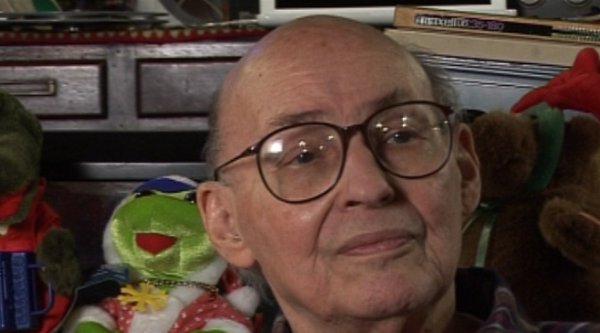NEXT STORY

The amazing videophone from the '60s
RELATED STORIES

NEXT STORY

The amazing videophone from the '60s
RELATED STORIES


|
Views | Duration | |
|---|---|---|---|
| 151. 'I want an anti-fad fad' | 1171 | 03:01 |

Now, what I want is an anti-fad fad. And if you look at my book The Society of Mind or the later one called The Emotion Machine, the idea there is that it’s nice to find a simple theory of how to make a machine smarter and there are a lot of those. What... the trouble is that none of those simple theories can solve very wide classes of problems. Each kind of learning machine or conditioning machine is good for solving some problems. Each prediction machine is good for solving other problems. And a system that simulates Darwinian evolution... trial and error and copying and breeding and so forth... evolutionary machines can solve other problems, but they don’t have the billions of years that Darwinian evolution had to... to develop human brains. So, what I’m looking for is just to have a few more people working on theories of how to combine other theories. It seems to me that the secret of the human brain and... why are we so much more resourceful than all the other animals put together?... is because we... we don’t work according to some particular clever... clever way of thinking. We’re not purely logical. We’re not purely memory based. We’re not purely rule based. But we have maybe 20 or 30 different strategies for learning and thinking and problem solving. And we have higher level management... we’re like committees of competing interests and competing ways to do things. And so, I’d like to see more people funded so that they can spend five or 10 years trying to develop these higher level, more complicated theories. There's just... and I see that this is very important for the future because when we have three or four billion older people and very few younger people, we’ll need these smarter machines to... to facilitate what they do in their everyday lives and... robotic vacuum cleaners are already pretty good, but there’s no machine that can make a bed and there’s... there's just so many things that every normal person can do. I don’t think any robot has ever put a pillow into a pillowcase. It would be fun to try, but I... I think probably everyone would lose that contest today.
Marvin Minsky (1927-2016) was one of the pioneers of the field of Artificial Intelligence, founding the MIT AI lab in 1970. He also made many contributions to the fields of mathematics, cognitive psychology, robotics, optics and computational linguistics. Since the 1950s, he had been attempting to define and explain human cognition, the ideas of which can be found in his two books, The Emotion Machine and The Society of Mind. His many inventions include the first confocal scanning microscope, the first neural network simulator (SNARC) and the first LOGO 'turtle'.
Title: 'I want an anti-fad fad'
Listeners: Christopher Sykes
Christopher Sykes is a London-based television producer and director who has made a number of documentary films for BBC TV, Channel 4 and PBS.
Tags: The Society of Mind, The Emotion Machine
Duration: 3 minutes, 2 seconds
Date story recorded: 29-31 Jan 2011
Date story went live: 13 May 2011